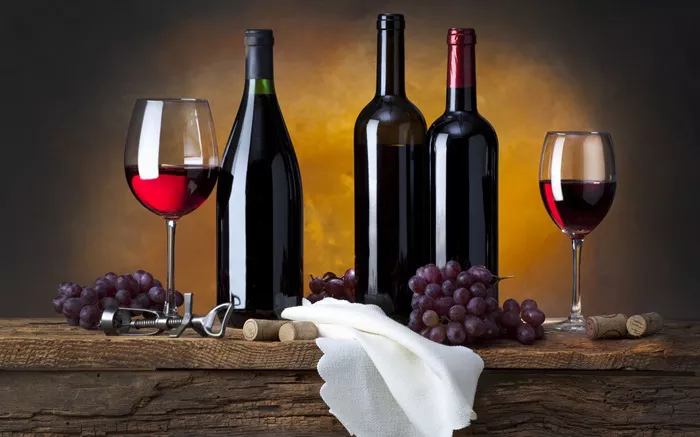MISSOULA, Mont. — A potential price increase for consumers could be on the horizon, particularly for wine, as a result of President Donald Trump’s recently imposed tariffs on the European Union (E.U.). The 20% tariff, which affects imports from all 27 E.U. countries, is expected to significantly impact industries reliant on European products, notably Italy and France, both key players in the global wine market.
Jason McMackin, owner of the Missoula-based French restaurant Brasserie Porte Rouge, expressed concern about the potential impact on his business. While McMackin intends to keep prices as reasonable as possible, he acknowledges that wholesalers are likely to raise prices across the board, not just on European wines but also on American wines. As a result, consumers may see a shift toward domestic wines, a trend McMackin believes could drive price hikes in the industry due to market demand.
“Wholesalers will raise prices for everything, not just European wine. American wines will go up, and more people will be buying them. Capitalism dictates that if something is popular, prices will increase,” McMackin said. “It could eventually reach a point where people stop buying as much or buy less.”
Regarding how much a glass of wine might increase in price, McMackin emphasized the uncertainty surrounding the tariffs and noted that they could ultimately serve as a negotiation tactic. He described the current business climate as unpredictable, with changes occurring rapidly, making long-term planning difficult for restaurant owners like himself.
“We can’t really do anything except watch and wait. It’s not up to us,” McMackin added. “Two weeks from now, we might be talking about something else — that’s the challenge of running a business right now.”
NBC Montana also reached out to Zip Beverage, a beer distributor serving the Missoula and Butte areas, but the company declined an interview. An anonymous employee at the business expressed concern about the rising cost of aluminum, a key material for producing beer cans, and noted that discussions about adjusting prices in response to the tariffs had not yet occurred due to the ongoing uncertainty.
In addition to the impact on wine prices, McMackin warned that the tariffs would likely drive up the cost of other products at his restaurant, including cheese. As a former baker, McMackin expressed particular concern about the rising prices of coffee, vanilla beans, and chocolate — products that are heavily reliant on international trade, especially from countries like Madagascar, which is currently subject to a 47% tariff on all exports to the U.S.
“With the tariffs on poorer countries that depend on exports like vanilla beans, I fear we’ll see prices soar,” McMackin explained. “For example, a vanilla bean that costs $1.50 now could rise to $4 or $5, which will harm smaller growers and give larger companies a chance to consolidate.”
These price hikes, McMackin noted, add up for small businesses that rely on a variety of imported ingredients. The restaurant owner indicated that customers will likely see increases in the cost of coffee and desserts as a result.
McMackin also voiced frustration with politicians who have described the tariffs as “short-term pain for long-term gain,” criticizing the disconnect between the political rhetoric and the experiences of small business owners who face immediate financial challenges.
“When I hear people say things like that — and when I say people, I mean those in leadership positions in this state — they’re not feeling the pain the way my staff and I feel it,” McMackin said. “It’s frustrating when they say short-term pain for long-term gain while we’re left to deal with the consequences right now.”
For the time being, McMackin’s restaurant is holding prices steady, waiting for further clarity about the tariffs and how they will impact the market. He explained that, because European wines often go through a lengthy supply chain, any price increases might take time to reach consumers.
“Wine is shipped across the ocean, often sitting in a warehouse in New Jersey before being distributed. It’s a long process,” McMackin said. “If these tariffs go through and Europe responds, we’ll have to adjust our prices accordingly.”
As the situation continues to evolve, McMackin and other business owners in Montana are left navigating an uncertain future shaped by international trade policies.
You Might Be Interested In:


